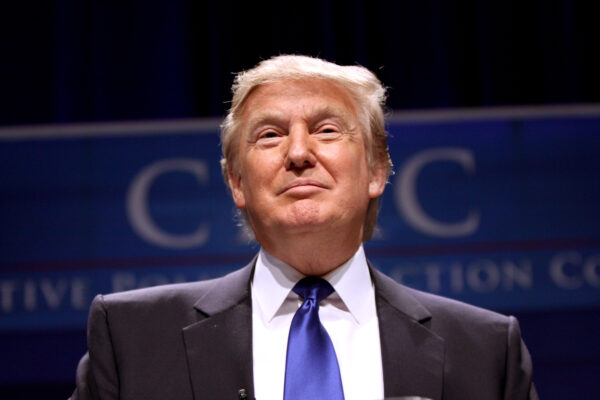In response to the surprising Trump victory of this year’s Presidential election, the Rev. Mark Whitlock is encouraging for faith organizations to be prominent moral voices against any future policies that could hurt marginalized communities. The Orange County Register‘s front page columnist David Whiting interviewed Whitlock, executive director of the Cecil Murray Center for Community Engagement and Richard Flory, CRCC’s senior director of research and evaluation.
Whitlock is concerned about the moral implication of Trump’s rhetoric, and he discussed how communities should move forward.
Whitlock’s flock, many African American, came to his church in Irvine confused, fearful, some feeling lost. They couldn’t understand how a man with Trump’s background could have such a groundswell of support.
Along with the rest of the nation, they watched as demonstrators across the country took to the streets shouting, blocking roads, holding signs, some – such as a crowd in Santa Ana – even smashing police cars.
While he condemns violence, Whitlock understood the frustration, the anger. He was OK with the sit-down protests. “Civil disobedience,” he says, “gets attention.”
Still, through it all, Whitlock knew that the election is history. Who voted and why is the past.
“He is our president,” Whitlock tells me after a prayer on a recent morning. “I will support our president.”
But he quickly adds, “And I will remind him that he’s president for all the people.”
The reverend, 62 years old and with a master’s in business administration from USC, decided it is up to religious leaders to help move America forward. Equality matters.
Flory confirmed that religious communities have a major impact on elections, as shown by surprising evangelical voting patterns in the recent election. Whiting quoted his OpEd in the International Business Times:
“What happened was, to me, mind-blowing,” Flory writes. “Despite the fact that Donald Trump holds nothing in common with evangelicals – he has been married three times, has sought out extra-marital affairs, was heard bragging about his ability to grope … has at best, a tenuous grasp of Christianity – yet, more evangelicals voted for Trump than for Mitt Romney, a committed Mormon, or George W. Bush, a committed evangelical.”
Flory, in part, dismisses evangelical claims that they supported Trump because of his abortion stance. Instead, the scholar says, “Trump has unexpectedly exposed the dark side of evangelicalism that is rooted in racism, sexism, misogyny, and homophobia.
“Evangelicalism can only be understood as a white, conservative Protestant political movement.”
But the movement, Flory says, has created a chasm.
“Many evangelicals – both younger and older – have stopped identifying themselves as evangelicals,” Flory says. “While this is not an immediate result of the election, the discomfort of many … is certain to accelerate the exodus by those who neither support, nor are interested in being identified with a bigoted, aging and backward-looking religio-political movement.”
Flory concludes these former evangelicals are building small churches that embrace “the realities of the diverse world.”
It is in those small churches, Whitlock says, where momentum can build for a faith-based tolerant administration.
Photo Credit: Gage Skidmore/Flickr





